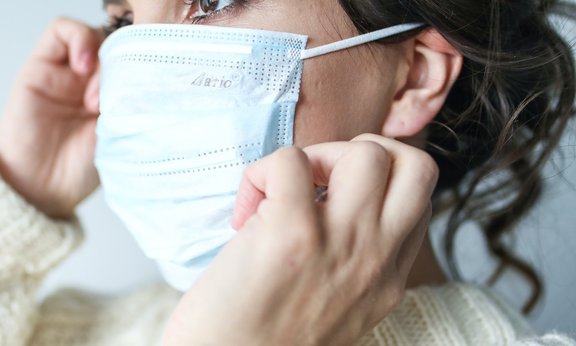Numerous studies over the last few weeks have pointed out that the effects of the Corona pandemic on people's mental health can be enormous and affect large parts of the population. In spring, Prof. Tatjana Schnell from the Existential Psychology Lab at the Department of Psychology at the University of Innsbruck, Austria, together with her colleague Henning Krampe from the Departement of Anaesthesiology at Charité - Universitätsmedizin Berlin, Germany, launched a comprehensive quantitative study. First results of this study have now been published in the journal "Frontiers in Psychiatry". Between 10 April and 28 May, a total of 1538 German-speaking persons, mainly from Austria and Germany, completed online questionnaires about their living conditions, their perception of the pandemic situation (COVID-19 Stress) and various characteristics of mental health, with a main focus on meaning in life and self-control. For 20 years, the psychologist Tatjana Schnell has been studying meaning in life on various levels and examining its effects on the stability of mental health. "In the current study, we looked at the way meaning in life affected people during the period of restrictive lockdown and immediately afterwards. Did people with a strong sense of meaning in their lives cope better with the situation?," says Schnell. "Our second major focus was on self-control: how well were people able to restrict their needs and adapt to the exceptional situation," she says about the study's objectives. In general, Schnell and Krampe found that older people showed higher resilience. The data suggested that older participants had to struggle with significantly fewer negative psychological consequences than the younger: "Meaningfulness tends to increase with age; older people are often better able to adopt metaperspectives and thus benefit more from their life experience in terms of their psychological stability," the researchers conclude.
Values during lockdown better than afterwards
The first results of this study, which have now been published, clearly show that general mental distress was significantly increased during the first months of the pandemic. "People who had a strong sense of meaning in their lives, however, reported less severe mental distress overall. The ability of self-control - which is an important resource in terms of compliance with restrictions - was also beneficial to mental well-being. Both meaningfulness and self-control acted as a kind of buffer: they weakened the connection between COVID-19 stress and mental distress," Schnell explains. The scientists were also interested in the development over several months: "The problems were apparently less severe during the strict lockdown than afterwards. The ease of restrictions did not lead to an improvement of the psychological situation - in fact the opposite was true. Schnell and Krampe can only assume what the reason for this is: "Of course, one source of concern is economic losses. In addition, our data indicate a possible connection with the ambiguity of the situation: During the strict initial restrictions, the situation was clear to everyone. There were explicit guidelines and everyone was in the same boat, so to speak. This atmosphere has probably had a positive effect for many people". In the weeks following the lockdown, Schnell und Krampe registered both increasing crises of meaning and more severe psychological distress as well as a diminished sense of meaning in life and a deficiency in self-control. "We assume that self-control declined shortly after the lockdown - and seems to have continued declining, as we can observe in society - because the restrictions’ purpose is less clear: In Austria and Germany, the measures have worked so well that the situation has not (yet) escalated, which leads one to question their meaning - the so-called prevention paradox. In addition, in recent months, communication by the authorities has become less explicit and comprehensible. But if the meaningfulness of the measures is not apparent, it is difficult for many people to maintain self-control in the long term," Tatjana Schnell points out.
Here Schnell and Krampe appeal once again to those responsible in politics: "If you want to achieve acceptance throughout society, you should act in a participatory manner. This implies that policy-making takes different perspectives into account, i.e. not only medicine and economics but also social sciences and the humanities. Moreover, democratic participation also means the active involvement of minorities and key interest groups. When this is successful, then self-control has less to do with obedience or resistance, but is a possible result of an informed personal decision".
Links
- Schnell T. and Krampe H. (2020) Meaning in Life and Self-Control Buffer Stress in Times of COVID-19: Moderating and Mediating Effects With Regard to Mental Distress. Front. Psychiatry 11:582352. doi: 10.3389/fpsyt.2020.582352
- Tatjana Schnell - Departement of Psychology
- Charité – Universitätsmedizin Berlin

